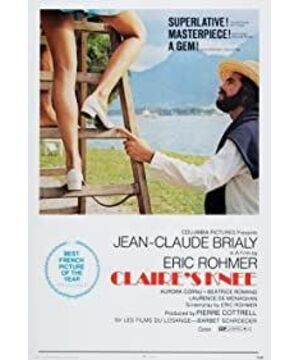In the opening chapter, the male protagonist Jerome meets Aurora, a female writer who has been a good friend for many years. After a while, he casually talks about a mural in the room-Don Quixote and Sancho are blindfolded riding on a wooden horse, and someone in front holds a torch. Let them think that they are riding a Pegasus, running to the sun. It's an all too obvious metaphor, with unrealistic heroism to imply the hypocrisy and absurdity of the next man's pursuit of morality.
The typical middle-class protagonist, a 35-year-old diplomat, is about to marry his lover of six years next month, while his fiancée Lucinde, who used to work for UNICEF, admits that they were on-again and off-again. Once had another lover and got married because she felt that she could live with her. Her only image is in a single photo - dressed in leather with short hair tied back, serious and capable. Apparently it doesn't make any "sex" fun.
So this story is limited to such a French village surrounded by mountains and rivers. A middle-class man who is about to get married, neither wanting to waste his last freedom, but also under the restraint of hypocritical morality, he finally decided to pass the marriage with the girl. Games to achieve spiritual indulgence and fill the inner emptiness. Instigated by the female writer, our cautious, simple, and inscrutable Mr. Diplomat, half-heartedly, began to contact the young girls who were also here on vacation...
Not too dissimilar to the others in "Six Moral Tales," and as expected, he wanders around two young girls - Laura and Claire - enjoying being on the edge of morality The thrill of walking, both mentally and physically. "Claire's knee" is also just a symbol of the young flesh, and by touching Claire's knee, he temporarily satisfies his desire. When the vacation was over, contented, he left to get married, while their lives went on.
The film is completely realistic and philosophical in style, diluting dramatic conflicts, long shots, natural light, natural sound, and large, metaphysical monologues about life and love in the dialogue. Some people say that Rohmer has long deviated from the New Wave, but I feel that the realistic technology and reasoning tendencies are not contrary to the typical New Wave spirit. As for the difference in the theme of the film, it is a subsection. The life of the middle class is also true, and truth is never wrong. . Of course, maybe my understanding is not enough.
Rohmer's "Six Moral Stories" read, very happy
View more about Claire's Knee reviews










